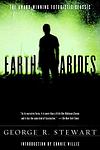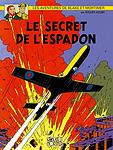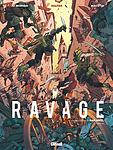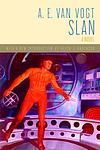The Greatest "Science fiction, Fiction" Books From 1940 to 1949
Click to learn how this list is calculated.
This list represents a comprehensive and trusted collection of the greatest books. Developed through a specialized algorithm, it brings together 290 'best of' book lists to form a definitive guide to the world's most acclaimed books. For those interested in how these books are chosen, additional details can be found on the rankings page.
Genres
Science fiction is a genre of literature that explores the potential consequences of scientific and other innovations on society and individuals. It often features futuristic or imaginary settings, advanced technologies, and scientific concepts that are not yet fully understood or realized. Science fiction can encompass a wide range of themes, including space exploration, time travel, artificial intelligence, and alternate realities. It is a genre that allows authors to speculate on the future of humanity and the impact of scientific progress on our lives.
Countries
Date Range
Reading Statistics
Click the button below to see how many of these books you've read!
Download
If you're interested in downloading this list as a CSV file for use in a spreadsheet application, you can easily do so by clicking the button below. Please note that to ensure a manageable file size and faster download, the CSV will include details for only the first 500 books.
Download-
1. Nineteen Eighty Four by George Orwell
Set in a dystopian future, the novel presents a society under the total control of a totalitarian regime, led by the omnipresent Big Brother. The protagonist, a low-ranking member of 'the Party', begins to question the regime and falls in love with a woman, an act of rebellion in a world where independent thought, dissent, and love are prohibited. The novel explores themes of surveillance, censorship, and the manipulation of truth.
-
2. Earth Abides by George Rippey Stewart
"Earth Abides" is a post-apocalyptic novel that follows the story of a geography student who returns from a solo trip in the mountains to find that most of humanity has been wiped out by a deadly plague. As one of the few survivors, he navigates through the deserted world, eventually forming a small community with other survivors. The novel explores themes of survival, the fragility of civilization, and the importance of community in the face of adversity.
-
3. Kallocain by Karin Boye
This dystopian novel presents a totalitarian world where the government exercises complete control over its citizens' lives, even their thoughts. The protagonist, a loyal soldier, invents a truth serum named Kallocain, which the government uses to extract citizens' innermost secrets. As the story unfolds, the protagonist begins to question the morality of his invention and the regime he serves, leading to a deep personal crisis. The book explores themes of individual freedom, privacy, and the dehumanizing effects of totalitarianism.
-
4. The Aleph And Other Stories by Jorge Luis Borges
This collection of short stories delves into a world of philosophical puzzles, literary references, and metaphysical intrigue. The narratives, often presented as intellectual exercises, explore themes of infinity, reality, and the nature of language and thought. The centerpiece story features a point in space that contains all other points, providing the protagonist with a vision of the entire universe. The other tales similarly challenge the reader's perception of time and identity, weaving together myth, religion, and history into a complex tapestry that defies conventional storytelling and blurs the line between the real and the imagined.
-
5. The Invention Of Morel by Adolfo Bioy Casares
This novel unfolds on a mysterious, deserted island where the protagonist, a fugitive, discovers a strange building and a group of tourists who appear and disappear inexplicably. As he observes them, he falls in love with a woman among the group, but soon realizes that these visitors are not what they seem. The narrative takes a turn into the surreal when he uncovers the workings of a machine invented by a man named Morel, which has the power to record and replay reality. The protagonist grapples with the implications of this invention on his perceptions of love, existence, and the desire for immortality, leading to a haunting exploration of the boundaries between reality and illusion.
-
6. Walden Two by B. F. Skinner
"Walden Two" is a utopian novel that presents an experimental community where happiness, productivity, and quality of life are the main goals. The community is guided by the principles of behavioral science, and it emphasizes the importance of cultural and environmental conditioning in shaping human behavior. The book explores the idea of an ideal society, free from the problems of modern civilization, through the eyes of a professor and his two ex-students who visit the community.
-
7. Blake and Mortimer by Edgar P. Jacobs
"Blake and Mortimer" is a comic series centering on two British heroes, a military intelligence officer and a nuclear physicist. The pair often find themselves embroiled in various international intrigues, battling against super-powered villains, alien invaders, and ancient civilizations. The series is known for its detailed artwork and complex plots, often involving science fiction and paranormal themes.
-
8. Out Of Space And Time by Clark Ashton Smith
"Out Of Space And Time" is a collection of fantastical and imaginative short stories that transport readers to otherworldly realms and dimensions. From encounters with ancient gods and mythical creatures to journeys through time and space, the author weaves together captivating tales that blur the boundaries between reality and the supernatural. With vivid descriptions and richly developed characters, this book invites readers to explore the unknown and embrace the limitless possibilities of the imagination.
-
9. Darker Than You Think by Jack Williamson
In this classic science fiction novel, the protagonist, a journalist, is thrust into a hidden world of ancient, shape-shifting sorcerers who have lived alongside humanity for eons. After the death of a renowned anthropologist who uncovered their existence, the journalist discovers he may be one of these powerful beings, known as the Children of the Night. As he grapples with his newfound abilities and identity, he must navigate a world where magic is real, morality is complex, and a battle between humans and these supernatural entities is imminent. The novel explores themes of identity, power, and the thin line between good and evil.
-
10. The Book Of Ptath by A. E. van Vogt
In "The Book of Ptath," a powerful god-like being from two hundred million years in the future awakens in the body of a man in the 20th century after a cataclysmic war. With no memory of his past, he must navigate a world vastly different from the one he once ruled. The novel delves into themes of power, identity, and the cyclical nature of history as the protagonist embarks on a quest to regain his memories and understand the forces that have shaped the destiny of both his past and present worlds. His journey is fraught with challenges as he encounters other powerful beings and confronts the complexities of time, existence, and his own godhood.
-
11. Ravage by René Barjavel
Set in a dystopian future where technological civilization has collapsed following a catastrophic event, the narrative follows a group of survivors as they navigate a world plunged into chaos. With all modern conveniences and social structures gone, the protagonist, a young man, leads a band of people from the ruins of Paris to his ancestral home in Provence, hoping to rebuild a simpler, agrarian-based society. Along the way, they face numerous challenges, including the regression of humanity to barbarism and the struggle to maintain their own humanity in the face of desperation. The story is a cautionary tale about the fragility of civilization and the enduring power of nature and human resilience.
-
12. Slan by A. E. van Vogt
The book is a science fiction tale set in a future where humanity is at odds with a genetically advanced subspecies known as Slans, who possess telepathic abilities and are persecuted by the fearful human majority. The story follows a young Slan named Jommy Cross as he navigates a world filled with danger and discrimination, seeking to uncover the truth about his kind and find a place where Slans can live in peace. His journey is fraught with challenges, including evading the relentless human forces bent on eradicating his species, while also contending with internal divisions among the Slans themselves. The narrative explores themes of prejudice, survival, and the quest for understanding between different beings.
-
13. Perelandra by C. S. Lewis
"Perelandra" is a science fiction novel that follows the protagonist, Dr. Elwin Ransom, on a journey to the planet Perelandra. There, he encounters a new Eden-like world inhabited by a beautiful and innocent woman named Tinidril. As Ransom tries to protect Tinidril from the temptations of a malevolent force, he must confront his own inner struggles and make choices that will determine the fate of Perelandra and its inhabitants. With thought-provoking themes of good versus evil and the nature of temptation, "Perelandra" explores the complexities of human nature and the consequences of our actions.
-
14. Shadow Over Mars by Leigh Brackett
Set on a colonized Mars, the story unfolds in a future where the planet is ruled by a tyrannical government and the powerful Inner Planets corporation. The protagonist, a rugged individualist and outlaw, becomes embroiled in a rebellion against the oppressive regime. As he navigates the complex political landscape, he encounters a diverse cast of characters, including a mysterious woman with her own agenda. The narrative combines elements of science fiction and noir, exploring themes of freedom, power, and the human spirit's resilience against authoritarian control.
-
15. Beyond This Horizon by Robert A. Heinlein
In a future society where genetic engineering has eradicated disease and the economy is managed to ensure abundance for all, the protagonist navigates a world where personal fulfillment and societal contribution are paramount. Citizens are armed and duels are a common means of settling disputes, while those who choose not to improve their genetic lineage are considered second-class. The narrative explores themes of eugenics, social structure, and the quest for meaning in a seemingly utopian existence, culminating in a revolutionary discovery that challenges the very foundations of this carefully constructed society.
-
16. The Mule by Isaac Asimov
In this science fiction narrative, a mysterious and enigmatic figure known only as the Mule rises to power, disrupting the established order of a vast galactic empire that had been predicted to endure for thousands of years. The Mule possesses unprecedented psychic abilities, allowing him to manipulate emotions and bend individuals to his will, thus enabling him to conquer worlds and challenge the Seldon Plan—a long-term mathematical framework designed to guide humanity to a second empire. As the Mule's influence grows, a small group of protagonists embarks on a quest to understand and ultimately find a way to stop this unforeseen variable, whose very existence threatens to derail the course of human destiny as foreseen by the greatest psychohistorians of their time.
Reading Statistics
Click the button below to see how many of these books you've read!
Download
If you're interested in downloading this list as a CSV file for use in a spreadsheet application, you can easily do so by clicking the button below. Please note that to ensure a manageable file size and faster download, the CSV will include details for only the first 500 books.
Download














